
5 years ago, as content marketing started to become a trend, I was trying to imagine what it would mean for businesses to thrive in a world where visibility was driven by content. I was asking SMB marketers back then: what if 5 years from now, 50% of your website’s traffic depended on your blog’s content? How would you prepare for that? Blank stares, skepticism, raised eyebrows… Let’s just say that the answers (or lack thereof) were the reason we started Scoop.it to begin with and began building content marketing software.
5 years later, content marketing has never been so hot. Yet, a majority of marketers are failing at it. According to CMI/MarketingProfs’ 2016 benchmark, only 30% of B2B marketers say they’re effective at content marketing. According to another study by BuzzSumo, 50% of web content get 8 shares or less.
5 years from now, what will content marketing look like?
Every day, we’re speaking with dozens of marketers who are turning to technology to help them conquer their biggest content marketing challenges. Over the past year alone, we’ve seen their needs evolve from overcoming the basic challenge of producing content to the more sophisticated needs surrounding content distribution and analyzing content performance. Increased competition for attention (Mark Schaefer’s content shock) as well as the increasing complexity of the content marketing process are driving that change and the need for technology to help.
How do content marketers expect technology to help?
Over the past 10 weeks, the Scoop.it team surveyed over 300 marketers to better understand this question. We also conducted dozens of longer interviews with SMB marketers to add a qualitative component to our research. And finally, we asked top content marketing experts including Joe Pulizzi, Mark Schaefer, Barry Feldman, Ian Cleary, Andy Crestodina, Mike Allton, Lee Odden or Bernie Borges for their insights.
The results have helped us to form the following vision for the content marketer of the future:
Content marketing is now much more complex than producing good content
In quantitative surveys like CMI / MarketingProfs’, a majority of marketers have consistently ranked content production as their #1 pain point year after year. But our interviews have shown a diverse range of situations: while producing enough engaging content and being consistent at it is the first obstacle to content marketing ROI, it’s definitely not the last. As marketers progressively learn to jog or run after they’ve learned to walk, they soon discover that creating good content is not enough to drive tangible results to their strategy.
- Content marketing was easier when fewer people were doing it. “Staying relevant when everybody does content marketing is both a content quality and a content distribution challenge”, says Alan Belniak, Content Marketing Manager at Alignable, a VC-backed startup in Boston.
- Proving the value is hard. “We’ve taken a different approach to producing content by sourcing it from our team across the company. But we struggle a lot with analytics and attributing leads and conversions to content”, we heard from the marketing manager of a mid-size company. “A lot of my clients have problems with measuring content effectiveness as multi-touch attribution is difficult to understand and set up”, echoes Jen Dewar, who runs a digital marketing agency in the Bay Area.
- Getting the whole company on board is not a given. “Ultimately, my biggest challenge is getting buy-in from the rest of the company as content marketing is where social media was 5 years ago: people are not sure what to expect”, commented another marketer who runs social media and content marketing for several mid-size companies.
Our own study reflects that complexity. Content marketing is neither a one-off campaign nor a specialized task. It is an ongoing and comprehensive process requiring optimization at every phase of the content marketing lifecycle, something that 63% of marketers acknowledge.
Do marketers expect technology to be part of the answer?
“Yes, absolutely” says Mark Schaefer. Both qualitative and quantitative answers are clear: marketers want and expect technology to help them make content marketing work for them.
|
|
“Today, marketing is math. To the extent that we can use technology to distill wisdom from the numbers, we will be more effective marketers.” – Mark Schaefer |
From a quantitative standpoint, 66% to 93% of marketers think it’s either likely or very likely that technology will make content marketing more efficient in the various tasks of the content marketing lifecycle:
The interesting take-away is that marketers don’t just expect technology to help organize data or task management: they also expect it to make them more efficient with creative tasks and strategy definition.
Or to put in Barry Feldman’s words:
|
|
“Content marketing future success is almost 100% based on technology.” – Barry Feldman |
Expectations: content marketing automation or content marketing intelligence?
We had robots assembling cars long before they could drive one. Similarly, we’re starting to see a growing need for elements of content marketing to become automated:
|
|
“One of the biggest things with technology is being able to scale what you do. There’s so much work involved: you can’t be in content marketing without technology.” – Ian Cleary |
The benefit of content marketing automation here lies in its ability to free up valuable time that can be dedicated to more human tasks such as building relationships, creating content or defining your strategy.
But what we’ve found is that marketers also expect technology to be smart – and make them smarter. Marketers are looking for content marketing intelligence that will help them to make better decisions and generate returns from their content investments:
|
|
“Of course I want to be as time-efficient as possible. But rather than doing it faster, it’s more about being smarter. So that the hard work that I put into content has more potential of being successful.” – Bernie Borges |
These expectations were reflected in the results of our survey. While content marketers’ #1 expected benefit from technology is to save time, a large number of marketers expect technology to help them get more intelligence on their content strategy.
Smarter, faster, stronger: meet the content marketer of the future
Let’s fast forward and dream: how can technology make our lives easier as content marketers?
The content marketer of the future will:
Be more confident on what content to create
While technological advancements in artificial intelligence can be scary, humans aren’t being replaced… yet. While machines aren’t expected to write content for us, they should help us generate content ideas in a much more predictable way by identifying trends, keywords or ideas that are appealing to our target audience.
|
|
“We need cognitive content marketing: technology should deliver topical ideas based on trends, the business problems I want to solve as well as on influencers or customers that I want to reach.” – Bernie Borges |
Technology can also help facilitate the complex process of content creation through checklists and automated tests to ensure the quality of our content before we hit publish and invest time in distributing it.
|
|
“I don’t think technology can teach someone to be a great writer. But it could tell you if your content is well written, if you included quotes and images, etc…” – Andy Crestodina |
|
|
“Technology should help us predict success based on a draft. We’ve all been wasting time writing pieces of content that were not popular while also censoring ourselves by not publishing something that might have been.” – Mike Allton |
Identify improvement opportunities automatically
Content marketing methodology involves many different best practices that are easy to understand but hard to keep track of. Findings from a previous research study conducted by Scoop.it showed that most marketers fail to systematically apply even the basic best practices of content marketing. What would happen if we reversed the roles and left it to machines to identify potential untapped opportunities and the specific actions we can take to get more out of the work we’ve already done?
|
|
“I’d love a dashboard where I could go to on a regular basis that would automatically be updated and tell me things like ‘you should share this evergreen content because it resonates well’ or ‘consider creating more content in that category as your audience likes it’.” – Ian Cleary |
|
|
“Feeding you actionable advice will become a big part of content marketing technology, by turning analytics into action.” – Barry Feldman |
|
|
“We need tools showing low-hanging fruit opportunities from your blog: use these related terms, collaborate with these people… or even link from these high traffic posts to these high converting posts.” – Andy Crestodina |
As marketers, our goal is not to create content for content’s sake but to generate business results with the content we create and publish.
|
|
“Our goal is actually not to create more content. Ideally we’d want to create the minimum amount of content with the maximum amount of results.” – Joe Pulizzi |
In other words: what are the opportunities that lie within the content I already have? The answer to this question is critical in order to generate maximum return on investments- and technology is expected to answer this question on a real-time basis.
Be (almost) omniscient
Armed with more intelligence in the form of insights and opportunities, content marketers will be more knowledgeable, especially when combined with perfect visibility on the existing and planned content they have available.
|
|
“Editorial planning should integrate all sorts of data sources on customer segment, industry trends, keywords, influencers, social topics… as well as visibility on existing channels, influencer participation for co-creation and promotion, existing assets for content repurposing and real-time audits for dynamic performance optimization” – Lee Odden |
Demonstrate the value more clearly
What if we could make content marketing an undisputed and proven strategy? And demonstrate the value clearly on an ongoing basis? As mentioned above, many marketers are wary about this topic and expect a lot of improvements.
Technology should be better integrated to provide measurement across the whole lifecycle in a personalized manner that gives us an edge.
|
|
“The measurement side is currently not good enough. End-to-end tracking needs to be improved so that the data isn’t lost from one stage to another or from one tool to the next.” – Ian Cleary |
|
|
“The ROI is the real question for the medium to large businesses. But you can’t expect somebody to see content and make a purchase decision instantly. Last touch attribution doesn’t work and we need technology to provide a better model to understand what exactly we’re getting from our investments in content.” – Mike Allton |
The fears associated with content marketing automation
The road to hell is paved with good intentions. Content marketing automation is not perceived as a solution devoid of dangers or risks: while some of the marketers we interviewed expressed some concern about their jobs becoming automated, the main fears were focused around misusing the technology.
Technology can’t be a shortcut for building a strategy or learning content marketing methodology in the first place.
|
|
“I look at technology for content marketing being used right now as putting off fires, solving very small issues. Before buying technology for content marketing, you need a strategic vision that makes sense for the organization.” – Joe Pulizzi |
|
|
“Automation as a function of unsophisticated marketing has no winner.” – Lee Odden |
In addition to the usual concerns with new technology adoption (learning curve, complexity, risk…), marketers we surveyed express other concerns. We’ve all seen brands receive harsh criticism for making automation mistakes on social media, and the risk of losing control is also often mentioned. Perhaps more importantly is the fear of compromising content quality: content is regarded as a fundamentally human activity, thus many view the idea of automating its creation as a risk of content becoming less authentic and instead growing more robotic and generic.
Perhaps a longer term concern, there’s also an “arms race” argument which asks the following: when we all have better software and tools, how do we find the edge against competitors?
|
|
“My biggest concern in this space is that we over-rely on automation and become lazy marketers. It’s intoxicating to let the algorithms do the work but if this is the same information our competitors can see too, how do we create competitive advantage?” – Mark Schaefer |
Over the past 5 years, content marketing has transformed from a simple opportunity into a necessary practice for businesses. But to fully cross the chasm and deliver undisputed results, it will need to benefit from major technology innovations. The content marketer of the future will still need to understand content marketing methodology, have creative skills and build her own strategy. But she’ll have intelligent content marketing automation to be smarter about the content she creates and the opportunities she has, faster at managing content operations and stronger at demonstrating the value to the rest of the organization.
Want to work smarter and start generating real results from your content marketing? Find out how to use the new Scoop.it Content Director to help you become a smarter marketer!
Image by Scott Taylor

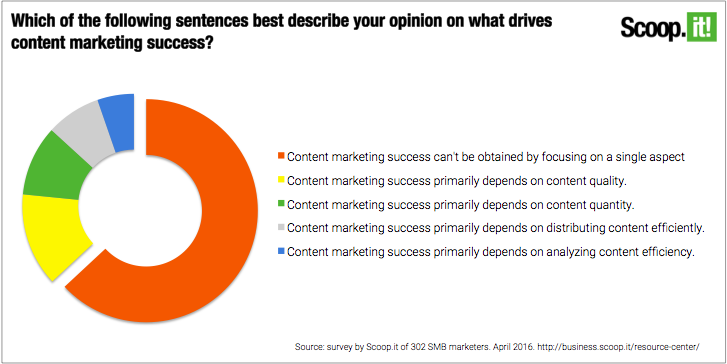

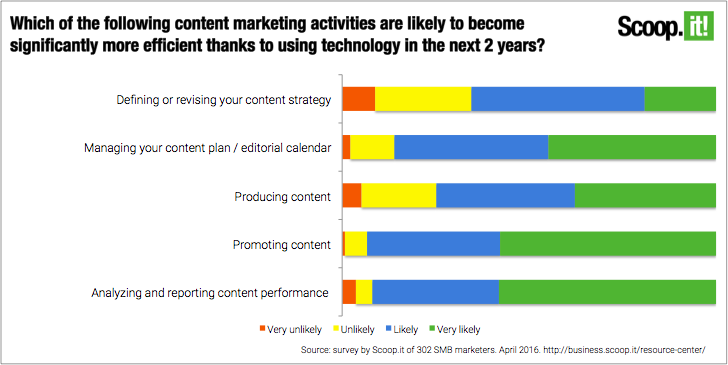

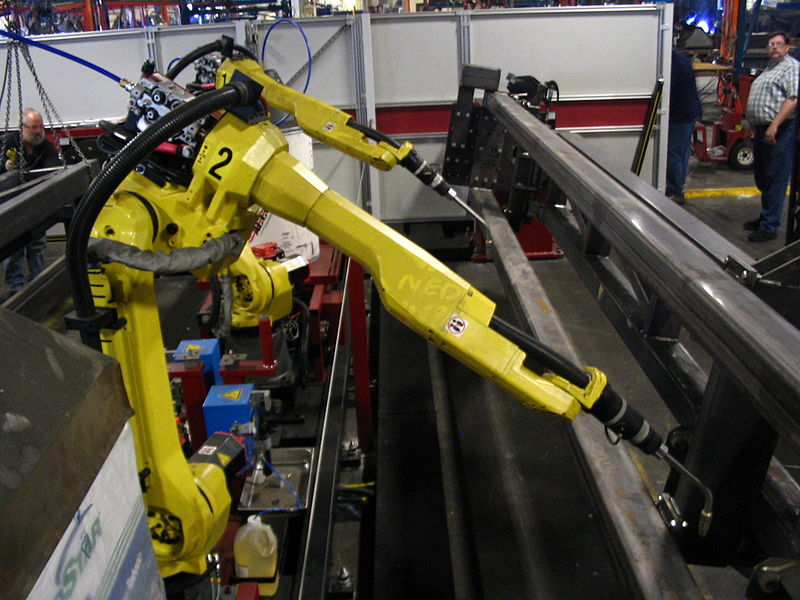
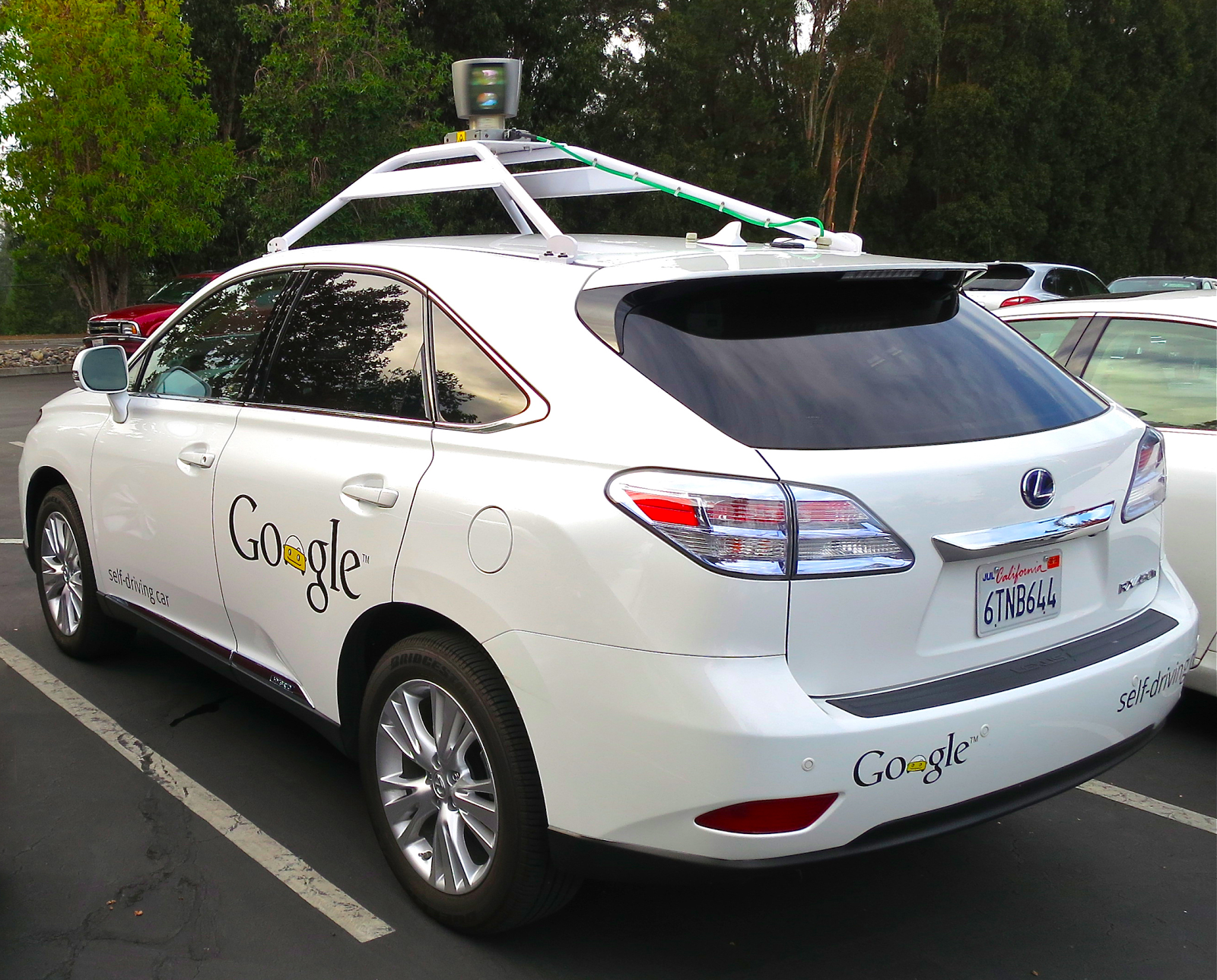


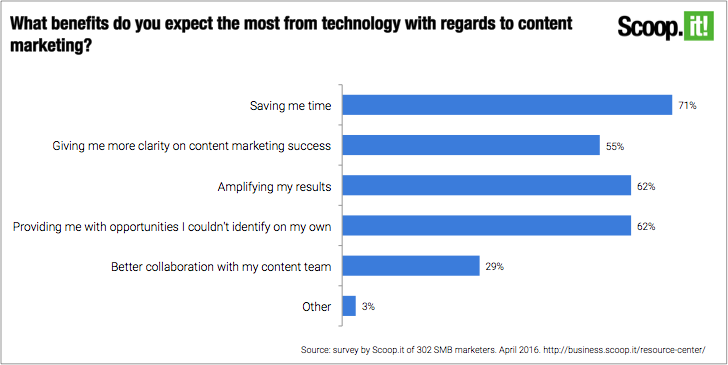






Fascinating, Guillaume! Thanks for putting this together.
Thanks for sharing your insights with us, @@mallton:disqus! Couldn’t have done it without you.
Great coverage of the future of tech in content marketing. Thanks for the information. Wherever technology takes us as marketers, content will always be King. We try to stay ahead of the curve by publishing robust educational content across https://www.thinkthroughmath.com, designed to connect our blog to our collateral pieces and forms. So far, we’ve seen success.
Brilliant read just had to share it!
Thanks @webcontentspecialists:disqus: glad you liked it!
Pleasure lets do stay connected.
This is a really enlightening piece. Thanks for putting it together.
It is better to be aware of what the future will bring. Thank you for this post, it enlightens me.